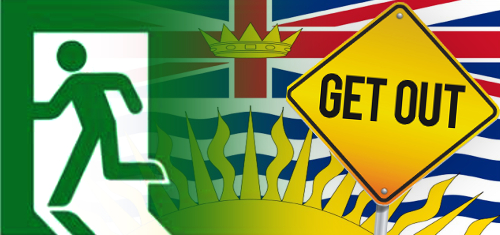 The Canadian province of British Columbia is warning international online gambling operators to stay off the provincial gambling monopoly’s turf.
The Canadian province of British Columbia is warning international online gambling operators to stay off the provincial gambling monopoly’s turf.
Late last month, the British Columbia Gaming Policy Enforcement Branch (GPEB) sent a letter to the CEOs of 19 different online gambling operators who accept wagers from BC residents, warning them that their activities are “likely to be contrary to both the Criminal Code of Canada and the Gaming Control Act.”
The letter, a copy of which was obtained by eGaming Review, claims that only the British Columbia Lottery Corporation (BCLC) “may conduct, manage or operate a lottery scheme in BC” and no other entity is allowed to dip its toe into BC’s gambling pool without the GPEB’s say-so.
(It’s worth noting that BC’s self-serving interpretation of the Criminal Code isn’t shared by many legal observers, who have argued that international sites are on safe legal footing as long as they maintain no physical presence within Canada.)
The letter goes on to say that BC has shared its list of online miscreants with its counterparts in other provinces, while seeking to “discuss the legal framework for gambling in BC.” The province also plans to hold in-person talks with European regulators, presumably to glean insights into the nuances of protectionist tactics.
BCLC’s online gambling site PlayNow.com was the monopoly’s fastest growing segment in its most recent fiscal report. The site earned record revenue of C$135.5m (US $102.7m) in fiscal 2015-16, but BCLC needs all the cash it can get if it’s going to keep on fighting freedom of information requests to turn over documents regarding rampant money laundering at BC casinos.
BC isn’t the first province to ponder means of combatting those pesky international operators who offer punters a broader variety of gambling options, usually at much better prices. Two years ago, Quebec and Ontario – which operate their own online sites – held talks on this same issue.
BCLC may have limited options should international sites choose to ignore its ‘who’s been eating my porridge’ missive. The legality of Quebec’s plan to compel internet service providers to IP-block the domains of international sites was recently called into question by Canada’s federal communications regulator, which has to date not considered international gambling sites a priority.
It’s also worth noting that Canada’s provincial gambling monopolies serve a dual role as both gambling operator and regulator, an inherent conflict of interest that effectively makes the provincial online sites more ‘unregulated’ than the international sites they love to condemn.